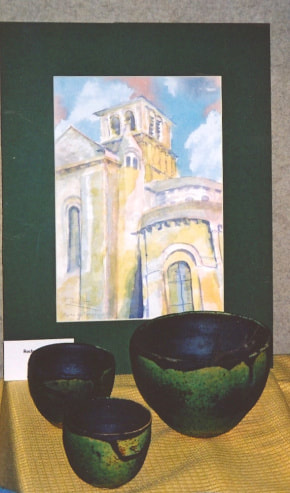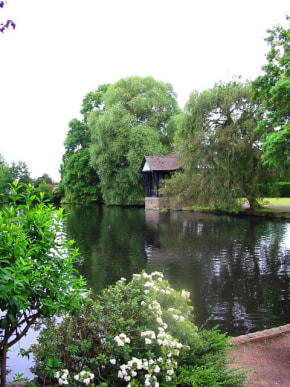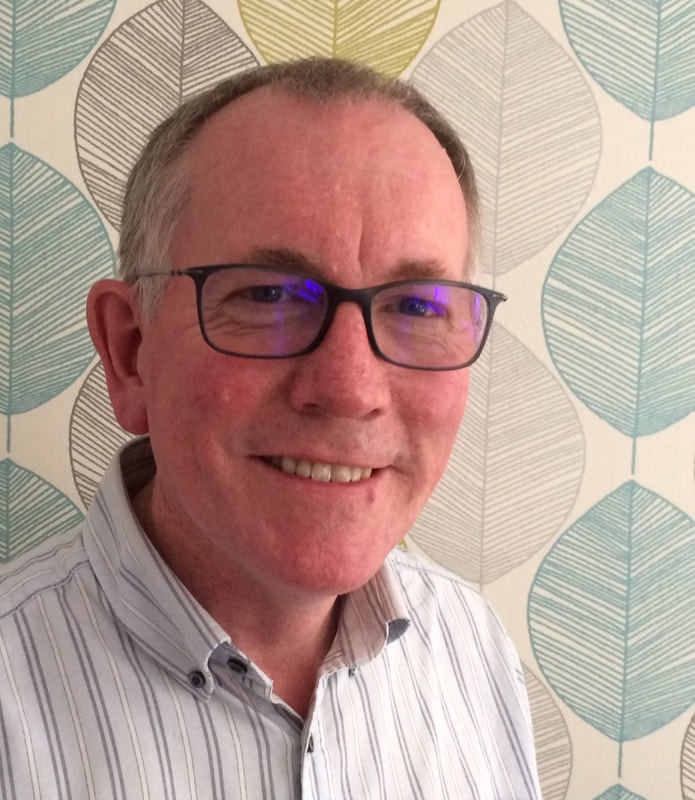 Life is full of them. All those things that are caused, but not planned, or intended. Recently we seem to have witnessed some big ones: There are many who wonder if the Brexit vote would have gone the way it did if some of the implications that have become clearer since had been known beforehand. There are those who continue to wonder how it is that Donald Trump came to be elected US President. Closer to home, the new traffic lights at the Warwick Road/Poplar Road junction while helping the new bus lane work well tends to cause gridlock on the main Lode Lane roundabout! I trust that was not intentional. How do we view such things in a world where we consider that God has an overall plan which will ultimately come to fruition? Is it that these are all down to human error or stupidity? This is clearly not the case in the eyes of everyone, for some see wisdom and progress in the two election outcomes. Is it that they are all part of a lengthy process within which we struggle and continue to seek God’s direction, even in opposition to others? Of course we each want to sense that God’s plan is much the same as ours, while also knowing full well that we are on a life-time journey to discover the truth of God and his creation. However, none of us has any real conception of the changes that are necessary not only in others, but in ourselves as well. Except that when we encounter Jesus and hear his call to such as loving our enemies, seeking a faith that will move mountains, losing our life rather than clinging to it, we begin to glimpse the scale of the struggle. Martin Luther was an Augustinian monk in 16th Century Germany. A life devoted to seeking a closer relationship with Christ led him to challenge aspects of church life and invite the church to debate the practice of ‘indulgencies’ and how people find God’s forgiveness. Pinning the case for discussion on the cathedral door in Wittenburg 500 years ago sparked what we now call the Reformation, the development of the Protestant churches, numerous bloody conflicts across Europe and the world and attitudes between Christians that we continue to seek to understand and resolve today – and it is not just to do with the Week of Prayer for Christian Unity. The Reformation also led to the translation of the Bible into everyday language, which itself shaped a common language in Germany that led to the unification of its many principalities. None of this was part of Luther’s intent, but we recognise the fruits as well as the struggles over the centuries. My understanding is that, as long as we continue to seek Christ in our world and the leading of the Spirit in our decision-making then, despite the mess we tend to make, God will bring his fruit to growth. What Luther reminds us is that ultimately it is only Christ who can put us right. He needs to live as Lord within our political systems, our churches and our personal lives. The image is of some of my pots from a few years back. They are all ‘unintended consequences’, as however much you shape them with your skill, submitting them to the fire of the kiln will always mean that you can never anticipate the final result. Sometimes it means that the work needs to be broken up. At other times the unintended can be beautiful – and real surprise!
0 Comments
 A personal reflection written as folk in the church had been exploring ‘story’ – theirs and God’s and how they interact. Across the road, and the view from my bedroom window, is a tall brick wall. It carries the scars of many accidents as people have driven round the tight bend too fast and not quite made it, but it guards and surrounds a park that is full of wonders and exploration for a young boy. It is my park, a place of imagination and excitement. On reflection, it taught me much of life and God. Just on the corner of our road, where my Mum or Dad guide’s me across with my bike, a rather grand solid timber double gateway opens through the brick wall. I rarely see it shut and it is inviting to anyone to discover what is within. They open to a wide avenue pathway leads to the big house, the lakes and open parkland beyond. At regular times in the year the gardeners will be hard at work stripping out the flower beds that line the pathway and planting fresh ‘not quite there’ plants to provide a rich colourful display according to the season. They are of little interest as I rush past on an urgent mission as a police motorcyclist chasing down someone who is always out of sight. Pathways take me around the three lakes. In Spring I am always on the look-out for the ducks with their ducklings crossing the road, but you do not get too close to the swans who, with wings spread like sails. The fact that one holds in memory is that they are strong enough to break your arm, so beware! Here is a hint that there is a darker side to this haven. The big house, home to a museum, reveals other evidence. I enter the gloomy hallway to be confronted with the familiar sight of a glass-cased pike, about 2.5 feet long. It bares its razor-teeth and is, thankfully, safe where it is. However, the story is that there is another large pike in the lake where the bandstand is, so one is always rather wary when playing near the edge, but it is part of the folklore that is enthusiastically passed to anyone who will listen that there is a man-eating fish lurking in the dark! On summer weekend afternoons I make my way to the boating lake, a large round sea where, if I were to launch my small yacht I would pace nervously around the edge wondering if the wind is enough to drive it to a distant shore. Nothing I could do. There is also the fascination of leisure cruisers, lifeboats, battleships and large sailed yachts, carefully prepared on stands by keen owners and launched to make their radio-controlled voyages. Of course one knows that if the wind or a motor fails there is always someone who will don waders to rescue a boat as well as revealing that this vast ocean is only 2ft deep. Also in the summer there is the glass-fronted beehive at the museum where I enter the world of these busy insects too-ing and fro-ing along a tunnel to fly off to gather their nectar, returning to fill the honeycomb. Which is which? Who is who? How do they know where to go? Why do they do this? I watch them for hours, but never find answers to my questions. Here I find myself in a different world, as I do in the scented garden with its braille plates that tell someone which plant is which, but not me. This is my playground, where I cover miles on my bike, journey the world, become whoever I want to, discover a lot and that there is so much more. I learn unknowingly of God and then at the end of a day realise the Park Keepers whistle is blowing and I have to get out before the gates are locked. That’s when I find my worried Dad coming to find me and take me home. Link to photo montage (not mine) of Broomfield Park etc. with many images that are familiar with the reflection above. |
Archives
March 2024
|
 RSS Feed
RSS Feed
